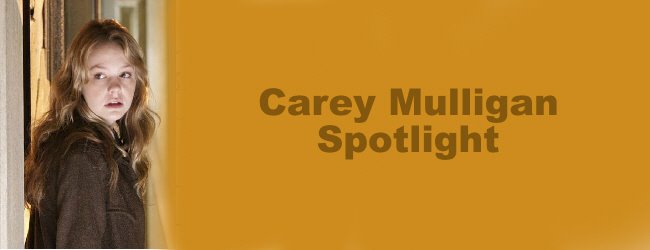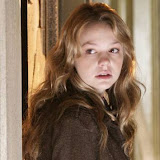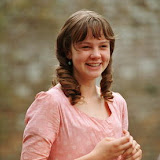Sorry for taking over 10 months to update this page but here is all the news relating the Carey over this time
Sunday, 18 November 2007
A Remembrance Day disservice
As ever, it was the week of the sorrow and the pity. The week on television that contains November 11 always has something that stuffs you with emotion. A boy wearing his father’s medals, an old man as straight as a Roman road in the cap of a long-amalgamated county regiment. This year, for me, it was Harry Patch, the last surviving combatant at Passchendaele. He spoke with that clear, reedy voice that surfs on the thin breath of the very old; and there was a moment when he paused and looked away, apparently caught on the wire of some flickering memory. To see the connection of this man, made venerable and precious by time, with the photographs and snatches of film from the first world war can never cease to astonish. The public interest in remembrance seems to be more intense than it was a few years ago: perhaps it’s because of the current cruel little wars, or maybe it’s the realisation that the generation who fought the second, and made the modern world, and who have always been there for us, are swiftly emigrating to that grainy other country across the Styx.
The showcase remembrance drama was My Boy Jack(Sunday, ITV1), a fictive version of the death of Rudyard Kipling’s only son at Loos just as he turned 18, and of the guilt and remorse felt by his jingoistic father. Daniel Radcliffe was rather touching as Jack, the shortsighted son of a shortsighted dad, given that he had little by way of motivation in an underwritten part in a woefully underwritten script by the actor David Haig, who himself played Kipling as a simple, childlike old duffer, awash with wholesome romance and naive patriotism – which is far less than a fraction of the truth about this complicated, immensely energetic, accomplished and inspiring man. His wife (played by Kim Cattrall) and daughter (Carey Mulligan) were written as completely modern figures who had modern feelings and put them in modern terms. It was altogether an annoyingly glib and shallow portrayal, seen with perfect hindsight. The truth was far more poignant and would have made a much better, if more complex, drama.
We were shown Jack Kipling’s heroic death, storming a machinegun that looked like something from the Thunderdome. This gave a cheap, saccharine neatness to the story, the sort of thing Kipling would have loathed. Actually, they never did find out how Jack died. There was one dubious report that he had been seen with a wounded jaw, weeping. The Kiplings spent years trying to find his grave, but never did. And that is a much more typical, tragic and universally unresolved ending. It is only with the smugness of looking back that you can see Jack Kipling’s death as ironic comeuppance for the patriotism of Rudyard. Nobody in 1914 foresaw the breadth and depth of the calamity, or the fathomless lake of grief the war would dig.
Jack was the second child Kipling lost prematurely. His adored first daughter died of pneumonia; the Just So stories were told for her. He wrote them down and published them in her memory. For Jack, he wrote his longest and least read book, a regimental history of the Irish Guards (the “Wild Geese”) in the first world war. In all its hundreds of grindingly detailed pages, Jack’s death merits only one bleakly factual line. Kipling wouldn’t give his son any special treatment in death, or single him out above anyone else’s son.
http://entertainment.timesonline.co.uk/tol/arts_and_entertainment/tv_and_radio/article2871022.ece
The showcase remembrance drama was My Boy Jack(Sunday, ITV1), a fictive version of the death of Rudyard Kipling’s only son at Loos just as he turned 18, and of the guilt and remorse felt by his jingoistic father. Daniel Radcliffe was rather touching as Jack, the shortsighted son of a shortsighted dad, given that he had little by way of motivation in an underwritten part in a woefully underwritten script by the actor David Haig, who himself played Kipling as a simple, childlike old duffer, awash with wholesome romance and naive patriotism – which is far less than a fraction of the truth about this complicated, immensely energetic, accomplished and inspiring man. His wife (played by Kim Cattrall) and daughter (Carey Mulligan) were written as completely modern figures who had modern feelings and put them in modern terms. It was altogether an annoyingly glib and shallow portrayal, seen with perfect hindsight. The truth was far more poignant and would have made a much better, if more complex, drama.
We were shown Jack Kipling’s heroic death, storming a machinegun that looked like something from the Thunderdome. This gave a cheap, saccharine neatness to the story, the sort of thing Kipling would have loathed. Actually, they never did find out how Jack died. There was one dubious report that he had been seen with a wounded jaw, weeping. The Kiplings spent years trying to find his grave, but never did. And that is a much more typical, tragic and universally unresolved ending. It is only with the smugness of looking back that you can see Jack Kipling’s death as ironic comeuppance for the patriotism of Rudyard. Nobody in 1914 foresaw the breadth and depth of the calamity, or the fathomless lake of grief the war would dig.
Jack was the second child Kipling lost prematurely. His adored first daughter died of pneumonia; the Just So stories were told for her. He wrote them down and published them in her memory. For Jack, he wrote his longest and least read book, a regimental history of the Irish Guards (the “Wild Geese”) in the first world war. In all its hundreds of grindingly detailed pages, Jack’s death merits only one bleakly factual line. Kipling wouldn’t give his son any special treatment in death, or single him out above anyone else’s son.
http://entertainment.timesonline.co.uk/tol/arts_and_entertainment/tv_and_radio/article2871022.ece
Subscribe to:
Post Comments (Atom)



No comments:
Post a Comment